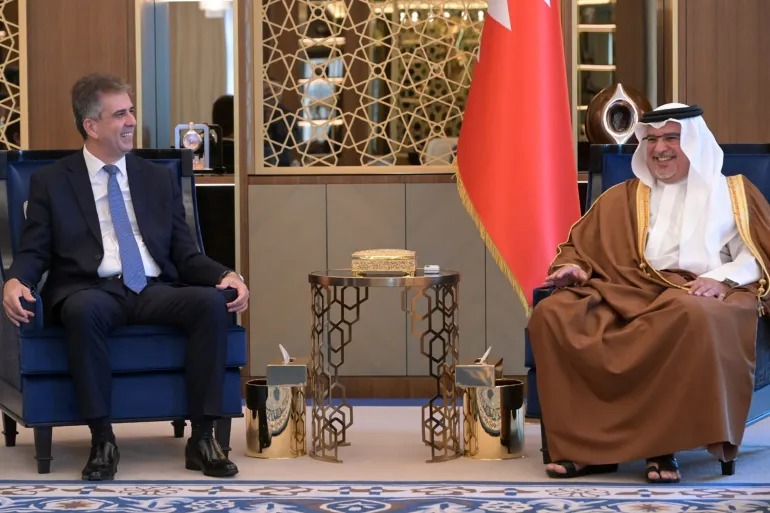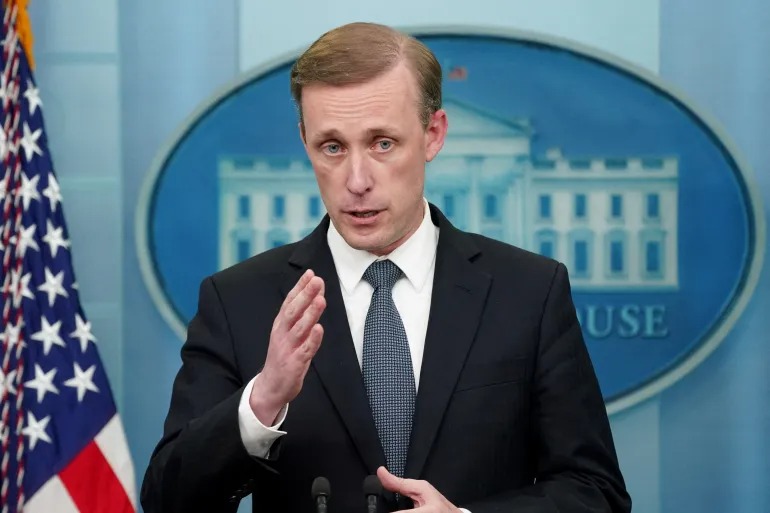In a significant stride towards strengthening diplomatic relations and expanding economic cooperation in the Middle East, Israel’s Foreign Minister Eli Cohen inaugurated a new embassy in Bahrain. This historic move marks another milestone in the enduring partnership between Israel and Bahrain, cemented under the Abraham Accords established in 2020. The visit not only symbolizes the deepening ties but also underscores the commitment of both nations to foster a more prosperous and integrated future in the region.
Strengthening Diplomatic Ties
Eli Cohen’s visit to Bahrain signifies the resilience of the diplomatic bond forged between Israel and Bahrain just three years ago. The Abraham Accords, brokered by the United States, brought Israel closer to Bahrain, the United Arab Emirates, and Morocco. The ceremony, attended by Bahraini Foreign Minister Abdullatif al-Zayani, emphasized the pivotal role the new embassy would play in expanding cooperation between the two nations. Discussions during Cohen’s visit led to an agreement to advance relations across various fields, encompassing economics, investment, trade, and more. The commitment to increasing the number of direct flights, tourism, and trade volume highlights the practical aspects of their strengthened alliance.
Economic Collaborations on the Horizon
Israel’s determination to enhance economic collaboration with Bahrain became evident with Cohen’s arrival, accompanied by a business delegation comprising over 30 companies specializing in high-tech, logistics, and real estate. Cohen’s meeting with Crown Prince Salman bin Hamad Al Khalifa addressed the importance of advancing a free trade agreement and projects to connect youths in Israel and Bahrain. Such initiatives will not only boost economic growth but also promote cultural exchange and understanding, fostering a sense of unity between the two nations. The mutual interests of Israel and Bahrain in economic growth and diversification underpin their commitment to nurturing a prosperous future.
Prospects of Broader Regional Normalization
Cohen’s visit to Bahrain coincides with growing speculation about a potential normalization agreement between Israel and Saudi Arabia, a significant player in the region. While not a signatory to the Abraham Accords, Saudi Arabia’s engagement in talks with the United States regarding normalization with Israel signifies a potential geopolitical shift in the Middle East. This development aligns with the vision of expanding the circle of peace and normalization to include more Arab and Muslim countries, as articulated by Cohen during a press conference in Manama. While the specific nations interested in joining this peace circle remain undisclosed, the aspiration for broader regional normalization remains a significant geopolitical development.
Despite recent tensions and condemnations against Israel from some Gulf Arab states, the commitment to diplomatic relations and economic collaboration between Israel and Bahrain remains steadfast. The inauguration of the new embassy and the agreements reached during Cohen’s visit reflect the shared vision for a peaceful and prosperous Middle East. As discussions with Saudi Arabia continue, the potential for broader regional normalization suggests a dynamic shift in the geopolitics of the region, further emphasizing the importance of diplomatic engagement and dialogue in the pursuit of peace and stability.
















